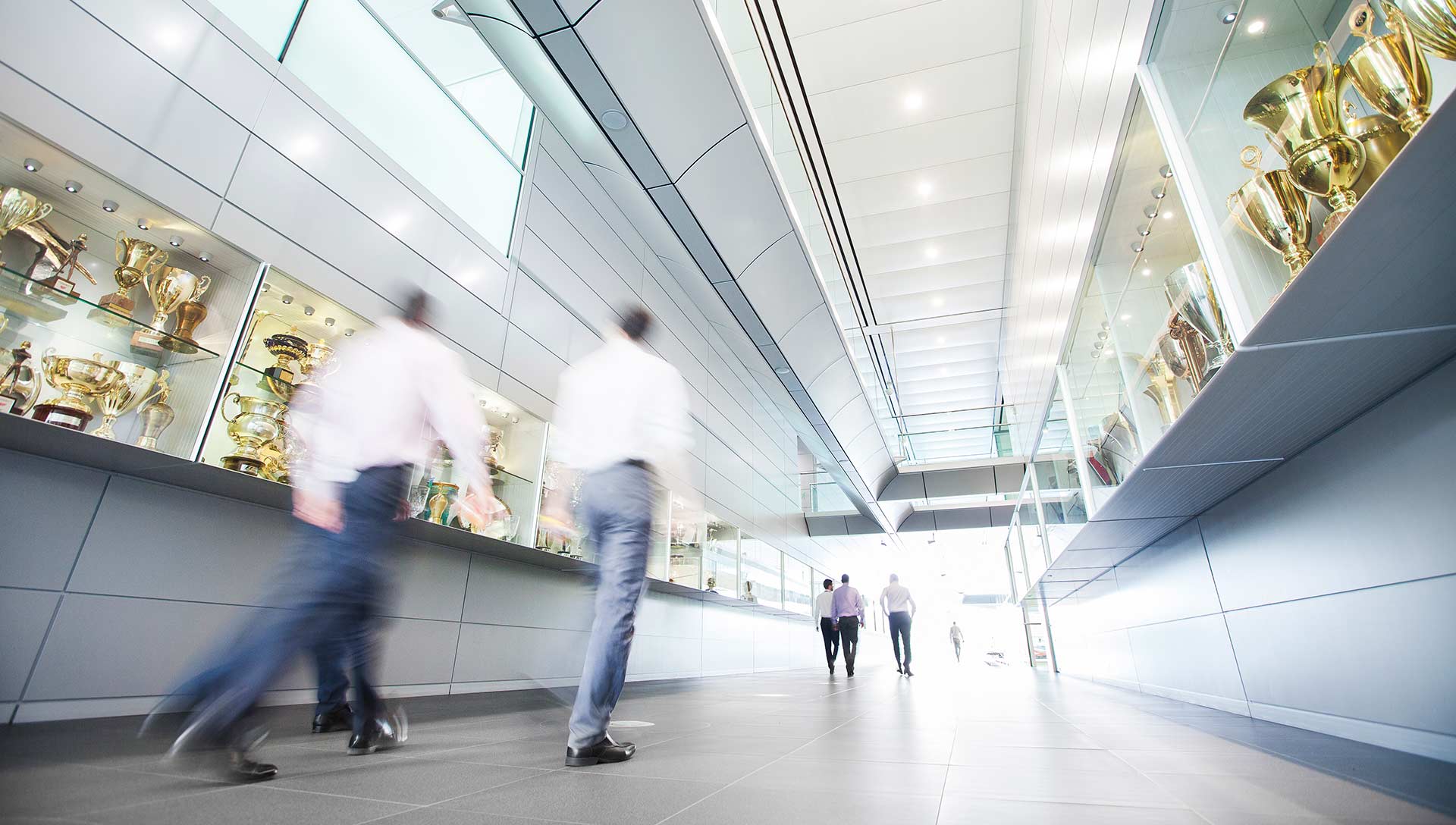
McLAREN MCL34 Technical Specification
Get exclusive insight into our 2019 challenger
Find our lowdown of the 2019 McLaren Formula 1 car below.
CHASSIS
| Monocoque | Carbon-fibre composite, incorporating driver controls and fuel cell | |
| Safety structures | Cockpit survival cell incorporating impact resistant construction and anti-penetration panels, front impact structure, prescribed side impact structures, integrated rear impact structure, front and rear roll structures, Halo secondary roll structure | |
| Bodywork | Carbon-fibre composite, including engine cover, sidepods, floor, nose, front wing and rear wing with driver-operated drag reduction system | |
| Front suspension | Carbon-fibre wishbone and pushrod suspension elements operating inboard torsion bar and damper system | |
| Rear suspension | Carbon-fibre wishbone and pullrod suspension elements operating inboard torsion bar and damper system | |
| Weight | Overall vehicle weight 743kg (including driver, excluding fuel) | |
| Weight distribution between 45.4% and 46.4% | ||
| Electronics | McLaren Applied Technologies. Including chassis control, power unit control, data acquisition, sensors, data analysis and telemetry | |
| Instruments | McLaren Applied Technologies dashboard | |
| Brake system | Akebono brake calipers and master cylinders | |
| Akebono ‘brake by wire’ rear brake control system | ||
| Carbon discs and pads | ||
| Steering | Power-assisted rack and pinion | |
| Tyres | Pirelli P Zero | |
| Race wheels | Enkei | |
| Garage radio | Kenwood | |
| Paint | AkzoNobel Car Refinishes system using Sikkens products | |
| Cooling systems | Calsonic Kansei water and oil cooling | |
| Advanced manufacturing | Stratasys 3D Printing & Additive Manufacturing Mazak Advanced Technology Solutions |
POWER UNIT
| Power unit type | Renault E-Tech 19 | |
| Minimum weight | 145 kg | |
| Primary PU components | Internal Combustion Engine (ICE) | |
| Motor Generator Unit – Kinetic (MGU-K) | ||
| Motor Generator Unit – Heat (MGU-H) | ||
| Energy Store (ES) | ||
| Turbocharger | ||
| Control Electronics |
INTERNAL COMBUSTION ENGINE
| Capacity | 1.6 litres | |
| Cylinders | Six | |
| Bank angle | 90 degree vee angle | |
| No of valves | 24 | |
| Max speed | 15,000 rpm | |
| Max fuel flow rate | 100 kg/hour (above 10,500 rpm) | |
| Fuel consumption | 110 kg ‘lights to flag’ regulated fuel capacity limit | |
| Fuel injection | Direct injection, single injector per cylinder, 500 bar max | |
| Pressure charging | Single-stage compressor and exhaust turbine, common shaft |
ENERGY RECOVERY SYSTEM
| Architecture | Integrated Hybrid energy recovery via Motor Generator Units | |
| Crankshaft coupled electrical MGU-K | ||
| Turbocharger coupled electrical MGU-H | ||
| Energy store | Lithium-Ion battery, between 20 and 25 kg | |
| Maximum energy storage, 4 MJ per lap | ||
| MGU-K | Maximum speed, 50,000 rpm | |
| Maximum power, 120 kW | ||
| Maximum energy recovery, 2 MJ per lap | ||
| Maximum energy deployment, 4 MJ per lap | ||
| MGU-H | Maximum speed >100,000 rpm | |
| Maximum power, unlimited | ||
| Maximum energy recovery, unlimited | ||
| Maximum energy deployment, unlimited |
TRANSMISSION
| Gearbox | Carbon-fibre composite main case, longitudinally mounted | |
| Gear ratios | Eight forward and one reverse | |
| Gear selection | Electro-hydraulically operated seamless shift | |
| Differential | Epicyclic differential with multi-plate limited slip clutch | |
| Clutch | Electro-hydraulically operated, carbon multi-plate |
LOGISTICS
| Transport | Volvo Trucks |




McLAREN unveils MCL34 alongside new 2019 driver line-up
Our 2019 contender breaks cover
MCL34 fire up
Listen as our 2019 challenger fires up for the first time
3, 2, 1... launch!
Shining a spotlight at the ever-evolving nature of our car launches
Zak Brown Q&A
Hear exclusively from our CEO as we reflect on 2018 and look ahead to 2019


